 Aadhaar Card
Aadhaar Card
Aadhar Card: How To Check PVC Aadhar Card Status
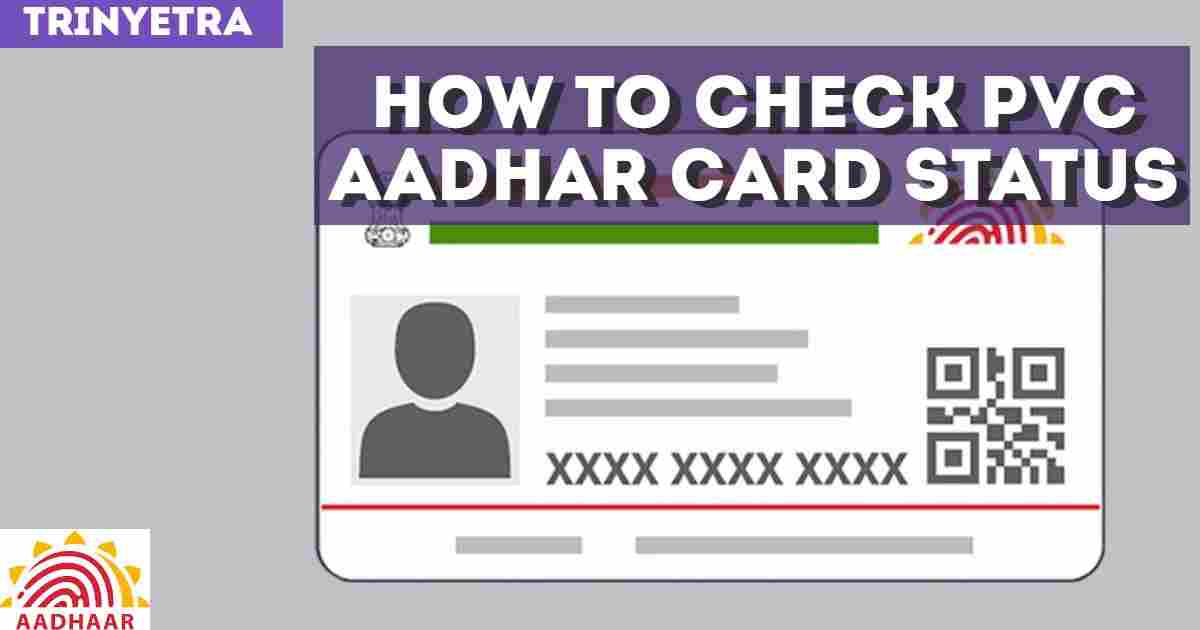
Adhar card is a 12-digit unique identification number issued to the citizens of India by the Unique Identification Authority of India (UIDAI), the Government of India.
There are two ways to check whether those changes have been made in the database or not. You can either track the request online conveniently or call the UIDAI toll-free number (1947) for offline status tracking.
Search "UIDAI" On Google
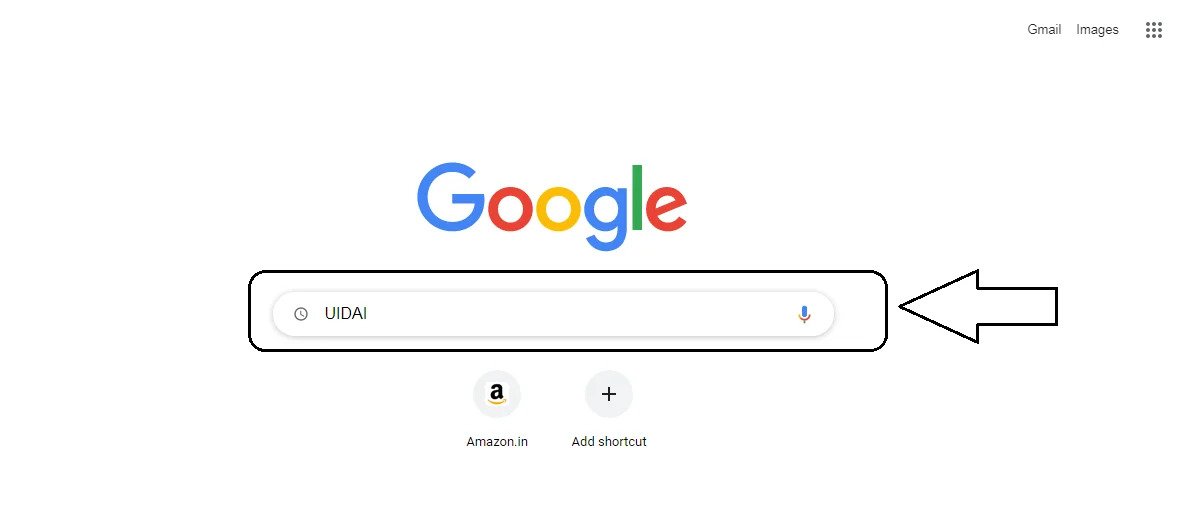
Open google home page and search UIDAI Or Check PVC Aadhar Card Status.
Open "UIDAI Official Website"

After this, you need to click on https://uidai.gov.in which appears as a first link in the google results as shown above.
Click On "My Aadhaar" Option

After this, you need to click on the My Aadhaar option at https://uidai.gov.in which appears in the front as shown above.
Click On "Check Aadhaar PVC Card Status"

Click on Check aadhaar PVC card status option or visit the link https://resident.uidai.gov.in/check-reprint-status
Enter Aadhaar Number
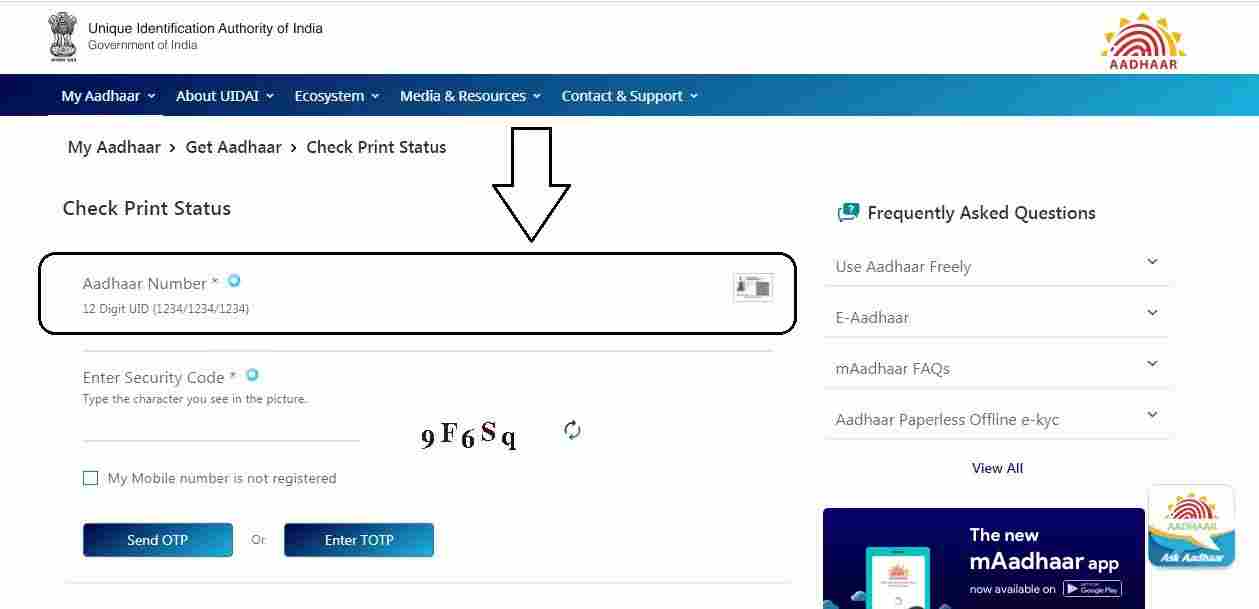
Now, enter 12 Digit UID (1234/1234/1234) or Aadhar Number.
Enter Security Code.

Enter Security Verification code which is shown to you.
Click “Send OTP” button

Click Send OTP button to get the one time password on your registered mobile number.
Enter OTP

Enter OTP which received on your registered mobile number in the given space as shown in the image above.
Click on "Terms and Conditions"

Click on the checkbox Terms And Conditions as shown in the image above. After this, click on the Submit button. now, you done with the process.
What is the use of Aadhaar Card
Aadhaar is a Hindi word that means “base”. Aadhaar card is your primary identity which tells everything about you like who you are, where you are from, your age and many more. It tells you are the citizens of India.
An Aadhaar card is basically a 12 digit unique number (here unique means these are the numbers that are only assigned to you in entire India) provided by the UIDAI (Unique Identification Authority of India on behalf of the Government of India.).
Here are features about aadhaar card.
- The card stores your personal details, demographic details and biometric details of resident individuals in the government database for the citizen services and public welfare.
- An Aadhar card is an important document that can be used as identity proof and address proof.
- An Aadhar card is essential for availing government subsidies, schemes and acquisition of passport and various other benefits and services.
- The best part of Aadhar services is its ease of availability. Once you apply for an Aadhar card, it is available for download online, known as an e- Aadhar card which can be accessed anytime without any hassles.
Here are more about Aadhar card
This is the sole program of its kind globally, wherein a state-of-the-art digital and online Id is being provided free from cost at such an oversized scale to people, and has the potential to vary the way service delivery functions within the country.
Aadhaar number is empty of any intelligence and doesn't profile people supported caste, religion, income, health and geography.
The Aadhaar number could even be a proof of identity, however, it doesn't confer any right of citizenship or domicile in respect of an Aadhaar number holder.
Aadhar card might be a strategic policy tool for social and financial inclusion, public sector delivery reforms, managing fiscal budgets, increasing convenience and promoting hassle-free people-centric governance.
Aadhar card is often used as a permanent financial address and facilitates financial inclusion of the underprivileged and weaker sections of the society and is therefore a tool of distributive justice and equality.
The Aadhaar identity platform is one altogether the key pillars of the ‘Digital India’, wherein every resident of the country is given a unique identity.
The Aadhaar programme has already achieved several milestones and is far and away the most important biometrics based identification system within the world.
Aadhaar identity platform with its inherent features of Uniqueness, Authentication, Financial Address and e-KYC, enables the government of India to directly reach residents of the country in delivery of varied subsidies, benefits and services by using the resident’s Aadhaar number only.
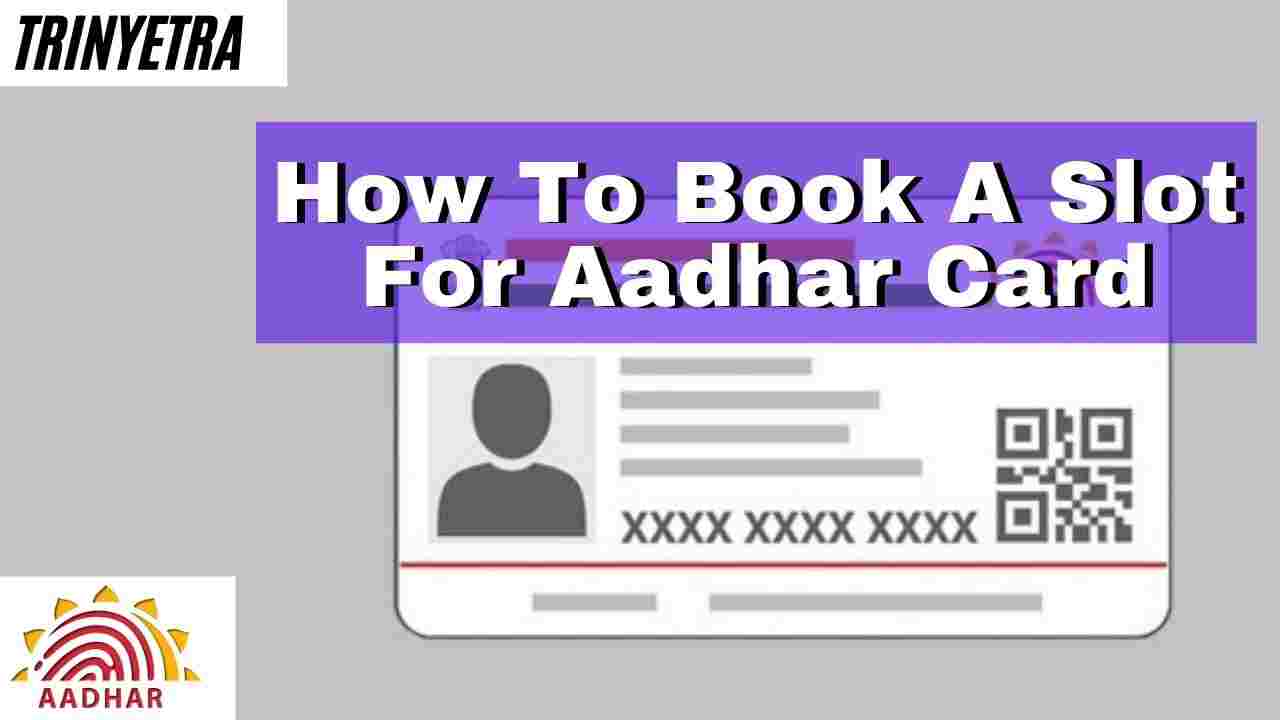
Aadhar Card: How To Book A Slot For Aadhar Card

Aadhar Card: How To Update Demographic Data In Aadhar Card

Download Aadhar Card: A Complete Guide On How To Download A

Apply Duplicate Voter Id Card: Learn How To Apply For Dupli
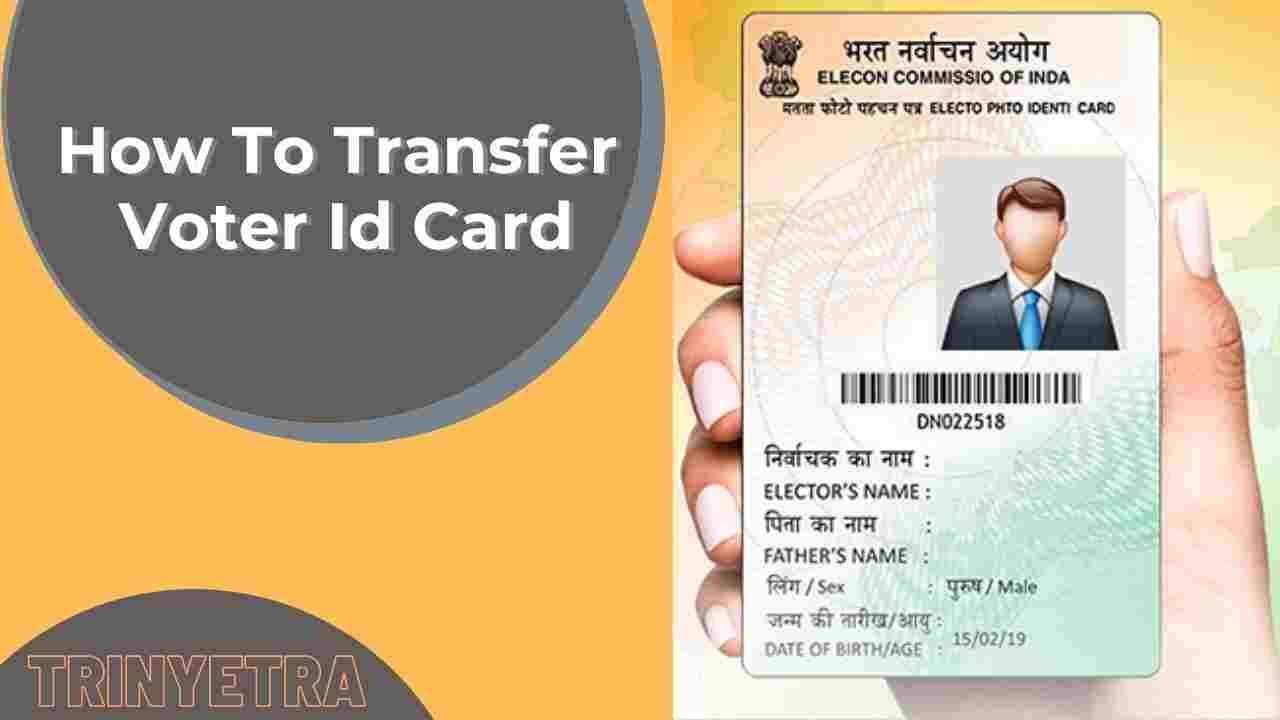
Voter Id Card: How To Transfer Voter Id Card
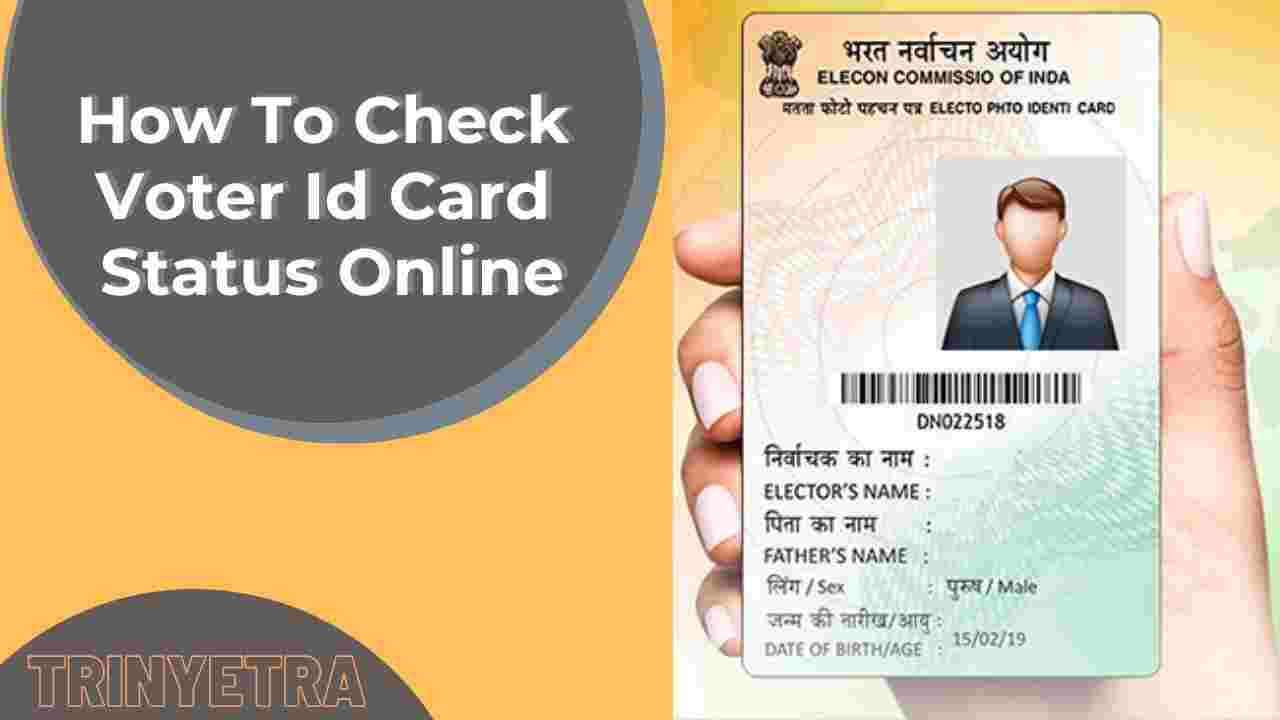
Check voter id card status: a guide on how to check the st
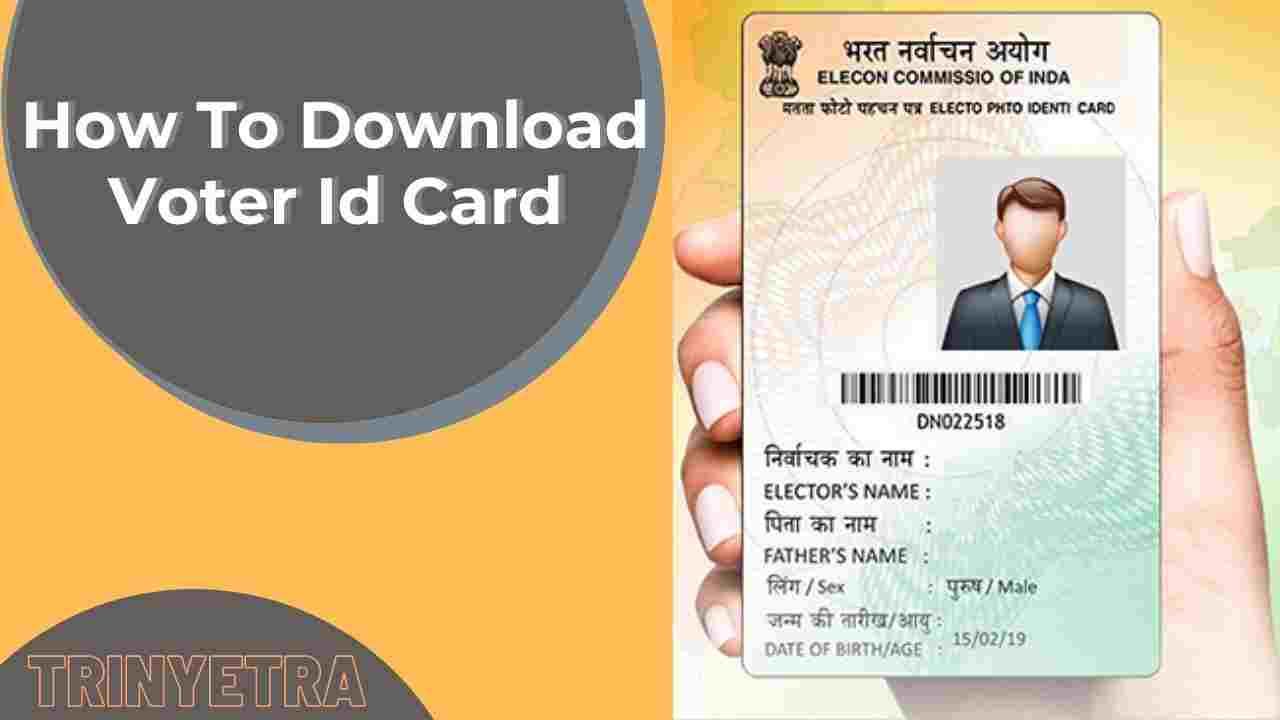
Download Voter Id Card: How To Download Indian Voter Id Car
